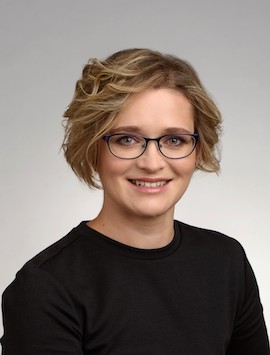Az elmélet és a gyakorlat integrációja a munkaalapú tanulás gyakorlatában egy egyetemi mesterszak szakmai gyakorlatának vizsgálata kapcsán
Absztrakt
Az egyetemi oktatással kapcsolatban napjainkban leggyakrabban megfogalmazott kritika szerint, nagy a távolság az egyetemi képzés célkitűzései, tartalma és módszerei, valamint a gazdaság, a munkaerőpiac gyorsan változó elvárásai között. A jelenség hátterében számos tényező áll, mégis, ha keressük a probléma fókuszát a szakmai identitás megalapozása és fejlesztése, a munkaalapú vagy munkahelyi képzés felértékelődése, ennek részeként az elméleti és gyakorlati képzés mibenlétének, arányának és tartalmának és módszertani kérdései állnak. Ugyanis a formális szakképzettség, például a szakmunkás bizonyítvány vagy egyetemi diploma megszerzése a szakemberréválásnak csak kezdete, amelyet hosszú, egy életen át tartó irányított vagy önirányító fejlesztési/fejlődési folyamat követ. (Kovács & Kálmán, 2021) A munkavégzést kísérő szakmai tanulás, szakmai fejlődési folyamat komplex jellegű (Zagir & Dorner 2021); benne nagy hangsúllyal jelenik meg az autentikus munkatapasztalat relevanciája, a szakmai fejlődést befolyásoló gyakorlat, amely jelentheti mind a formális szakmai fejlesztő programokon való részvételtelt, mind a szakemberektől történő tanulást, a tapasztalatok cseréjét vagy a problémák megoldására irányuló kommunikációt, amelybe folyamatosan integrálódik a munkán kívüli tapasztalatok sokasága.
A pilot jellegű kutatás[1] során - egy nagyobb mintán megvalósuló későbbi kutatás kiindulópontjaként – vizsgáltuk az ELTE PPK emberi erőforrás tanácsadó mesterszak szakmai gyakorlatának keretében megjelenő munkahelyi tanulás jellemzőit, azt, hogy megvalósul-e az egyetemi, elmélet hangsúlyos képzés és a munka-alapú tanulás integrációja? Hogyan járul hozzá a szakmai gyakorlat az egyetemi képzésben elsajátított ismeretanyag gyakorlatban való alkalmazásához? A kutatás célcsoportját a szak alumni hallgatói jelentették, akik körében online kérdőíves és interjús vizsgálatot végeztünk, validált nemzetközileg ismert mérőeszközök (Ackermanns et al., 2013; Nghia & Duyen, 2019) adaptálásával. A tanulmány kitekint a munkaalapú tanulás és az elmélet és gyakorlat integrációjának néhány kérdésére, valamint összefoglalja a pilot jellegű kutatás legfontosabb eredményeit. Jelen tanulmányban a pilot jellegű kutatás első eredményeinek egy szeletét, a kutatás néhány tapasztalatát tekintjük át azzal a céllal, hogy tapasztalatainkat megosszuk és diskurzust generáljunk az elmélet és gyakorlat felsőoktatási vonatkozású kérdésköréről.
[1] A kutatást az ELTE PPK „Doktori Projektek” konzorciális kutatási pályázat támogatásával az ELTE PPK Felnőttképzés-kutatási és Tudásmenedzsment Intézet Szervezeti és Munkahelyi Tanulás Kutatócsoportja valósította meg. Kutatásetikai engedély száma: 2021/313.








